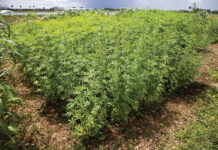Cannabidiol, or CBD, is a versatile and powerful anti-inflammatory cannabinoid with few to no side effects. The number of conditions it can be used to treat increases daily with the release of new scientific information. One severe condition CBD is beginning to be seen as a treatment for is traumatic brain injury, or TBI. TBI can occur in any person who suffers brain trauma and is often a debilitating and life altering condition with no true cure.
Scientific Evidence Supports CBD May Treat Brain Injury
While there is yet no known cure for traumatic brain injury, there is some scientific evidence that suggests CBD may be able to reduce some of the damaging side effects of TBI including neuroinflammation and neurological impairments. A study released in 2017 by “Frontiers in Pharmacology” found that, “As such, the endocannabinoid system possesses potential drugable receptor and enzyme targets for the treatment of diverse TBI pathology.”
The “Frontiers in Pharmacology” study is promising in showing that the endocannabinoid system is key in treating traumatic brain injury. There also a number of studies that show CBD (in combination with THC) has neuroprotective qualities, meaning that a regular consumption of cannabinoids can actually make the brain more likely to absorb the impact of brain trauma with out the lasting effects of a traumatic brain injury.
NFL May Consider CBD Treatments
The National Football League has been embroiled in controversy over their misdiagnosing and mishandling of concussions leading to life-harming side effects. The NFL recently agreed to settle a class-action lawsuit with former players who allege the NFL did not accurately diagnose or treat concussions. The players also allege that teams allowed, or forced in some cases, players to remain in games after they had clearly suffered a concussion. The settlement became final and effective on January 7, 2017 and has already paid out claims worth $657,320,496 according to the official settlement website.
To combat concussions, which will always occur as a result of playing the game of football, the NFL has implemented a number of rule changes and has made valuable alterations to helmets. In addition, “The NFL and the NFL Players Association agreed for the first time to cooperate in studying the potential use of marijuana as a pain management tool for players,” according to the Washington Post.
This would be a huge step forward for the league, which has banned players for consuming cannabis for years. Though they won’t necessarily be studying cannabis as a way to treat brain injury, the fact that the NFL and NFLPA are studying cannabis’ effectiveness at all is a positive development that will hopefully lead to more cannabis/CBD studies in the future.
Anecdotal Support of CBD Brain Injury Treatments
Scientific evidence takes years to be studied and released. The substance being studied, CBD in this case, must be tested vigorously before a conclusion can be derived. However, while studies take time, there is anecdotal evidence from people who believe cannabis has been helpful in treating brain injury. Julie Henneberry Klug’s life changed the day her children were involved in a horrific car accident.
Her daughter Sydnee suffered a traumatic brain injury in the accident and was told by doctors she would be symptomatic for the rest of her life. However, after Mrs. Henneberry Klug started Sydnee on CBD oil, “Sydnee never suffered from depression, anxiety, or anger. Once she started on the CBD oil, she no longer required drugs like Ibuprofen for pain.”
CBD has the potential to make life worth living for some of the many whose lives have been permanently altered by traumatic brain injury. The scientific evidence is promising and the anecdotal evidence, of which Ms. Klug’s story is one of many, is irrefutable. It will take time to fully understand CBD’s brain healing properties but it must be studied further.

Lane is based in Southern California and is a content curator for Medical Marijuana 411. He spends his free time playing guitar and walking on the beach. He focuses his research into finding informative stories that can help medical marijuana patients better understand their diverse medicine.











